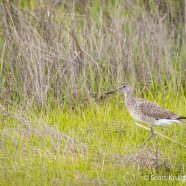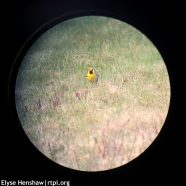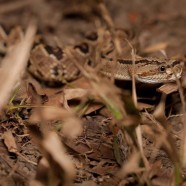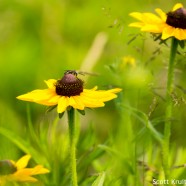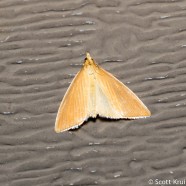Willet
Here is a Willet (Tringa semipalmata) that I photographed during the Noble Proctor BioBlitz Challenge this past May. Now that we have entered August we are firmly in the time of year for these birds to be found as migrants in many marshes, wetlands, beaches and coastal locations. We can also expect to find one or two Western Willets that have a distinctly different appearance including a softer toned, less-barred gray body, a slightly leaner bill, and a bit of a larger overall size. See if you can spot one soon! That can be a difficult task to begin with as you can see how well their...
Read MoreCamera Blunders
During this time of the year, when bird migrations are happening, salamander eggs are growing and plants are budding, it doesn’t take long to kill a camera battery from lots of activity. And once that battery is dead, it doesn’t do any good when you are headed into the field once again! I discovered on Monday morning as RTPI Alex Shipherd and I were headed up to the Chautauqua County-Jamestown Airport, that my camera battery was done for. Alex’s camera was ready to go, and I at least had my phone and we took our field scope with as well. As you can see, we found Eastern...
Read MoreCentral American Rattlesnake
This Central American Rattlesnake (Crotalus simus) works its way through the grasses of the dry province of Puntarenas, Costa Rica as photographed by RTPI Affiliate Sean Graesser. Superb shot!
Read MoreBlack-eyed Susan
It is a beautiful time of the year with July’s grasses and flowers filling every field with treasures like Rudbeckia hirta, or Black-eyed Susan, delighting our insects and sustaining our world. As we embark into August make sure you schedule time to be outdoors this weekend!
Read MoreStreaked Orange Moth (Nascia acutella)
This appears to be a Streaked Orange moth (Nascia acutella), a species that the Peterson Field Guide to Moths of Northeastern North America by David Beadle and Seabrooke Leckie describes as “uncommon” with its host plant “presumably grasses and sedges”. It is an example of how little we know about some of these scarce, cryptic, often local or specialized moth species. Only by extensive searching and subsequent discovery can we begin to unravel the mysteries of their life histories.
Read More



